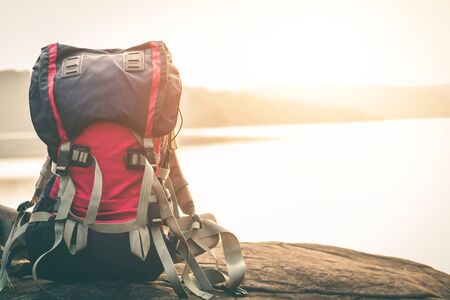Soaking Up the British Summer
The hush of twilight settles over a Cornish cove, where the sky blushes with pinks and golds, and the last warmth of the day lingers on sea-polished stones. Far to the north, a Highland breeze dances across wild heather, bringing with it the scent of pine and the promise of cool, clear air. This is summer in the UK: a patchwork of landscapes stitched together by long evenings, lively birdsong, and the gentle anticipation that comes with sleeping under open skies. From the tranquil lakesides of Cumbria to windswept Welsh valleys, British summer camping is an invitation to step into nature’s storybook—where every night brings its own character. Yet, as glorious as these nights can be, they demand a touch of practical magic. The unpredictability of British weather—one moment balmy, the next brisk—means choosing the right sleeping bag becomes not just a matter of comfort but of truly embracing each unique locale. Whether you’re tracing coastal trails or pitching up in ancient woodlands, your choice of lightweight sleeping bag will shape your experience beneath those storied skies.
2. What Makes a Summer Sleeping Bag Ideal?
As daylight stretches into the late evening and the gentle hush of British woodlands or windswept hills beckon, choosing the right sleeping bag becomes an art. For summer camping across the UK—whether youre nestled beside a mirror-still tarn in the Lake District, wandering through wildflower meadows of the Yorkshire Dales, or simply escaping to your local patch of woodland—the essentials remain the same: breathability, weight, and weatherproofing tailored to our famously changeable climate.
The unpredictable British summer might offer golden sunsets one moment and a cool, drizzly dawn the next. Here’s where a lightweight sleeping bag proves indispensable—not just for comfort during balmy nights but also for practical reasons when you’re carrying kit over rolling fells or along winding footpaths.
| Feature | Why It Matters | UK Camping Relevance |
|---|---|---|
| Breathability | Prevents overheating and clamminess on warmer nights | Keeps you comfortable during muggy spells or after a day’s hike |
| Lightweight Design | Makes packing and carrying easier; reduces fatigue on long walks | Ideal for wild camping in remote spots from Cornwall to Cairngorms |
| Weatherproofing | Protects against dew, light rain, and sudden chills | Copes with misty mornings and unexpected showers typical in Britain |
A sleeping bag that balances these qualities can be the difference between waking refreshed to birdsong or tossing through a sticky night. When you’re pitching up under ancient oaks or by stone-walled fields, a well-chosen summer bag lets you savour every note of nocturnal song and every cool breeze without worry.

3. Budget-Friendly Options: Comfort Without the Cost
For many of us, the beauty of a summer night under the British stars is best enjoyed without breaking the bank. Fortunately, there’s no shortage of lightweight sleeping bags that cater to campers seeking both comfort and savings. The UK’s high street favourites—think Go Outdoors, Decathlon, and Mountain Warehouse—offer trustworthy sleeping bags that won’t see you shivering or sweating through the small hours. When searching for a budget-friendly option, keep an eye out for features such as breathable fabrics, compact pack sizes, and a season rating suitable for those unpredictable British nights. Don’t dismiss lesser-known brands either; often, local outdoor shops in towns from Cornwall to Cumbria stock hidden gems at reasonable prices.
What truly sets these affordable bags apart is their balance between practicality and price. Consider the tale of Tom from Sheffield, who managed his first solo trip along Hadrian’s Wall with nothing but a 1-season bag picked up in a sale at Blacks. “It was light enough to sling into my rucksack,” he recalls, “and warm enough when a chill rolled off the hills.” His story isn’t unique—across the Lake District or the wild Welsh coast, local adventurers sing praises of entry-level bags that punch well above their weight.
Seek out end-of-season clearances or keep an eye on online outlets like Cotswold Outdoor’s clearance section. These are prime opportunities to snag a reliable summer sleeping bag at half the regular price. Look for simple but essential touches: a soft lining for comfort after a long day’s walk, sturdy zips that won’t snag when darkness falls, and easy-to-clean materials for those inevitable encounters with dew and damp grass. In essence, enjoying Britain’s great outdoors doesn’t demand deep pockets—just a keen eye for value and a willingness to wander where the path leads.
4. Premium Picks: For the Ultimate Summer Sleep
For seasoned campers who crave more than just a night’s rest, the UK’s premium sleeping bag market offers an exquisite blend of comfort, innovation, and British craftsmanship. These high-end options promise not only warmth but a touch of luxury as you drift off beneath the soft hush of a summer breeze on Dartmoor or beside the tranquil waters of the Lake District. Here, every detail is considered—from eco-friendly materials to ergonomic tailoring—ensuring your nights under canvas are nothing short of serene.
Luxury Materials Meet British Ingenuity
The latest premium sleeping bags harness cutting-edge insulation technology and sustainable fabrics, such as responsibly-sourced down and recycled synthetic fibres. These materials deliver featherlight packing without compromising on thermal efficiency or that enveloping, cloud-like comfort after a long day’s hike. Many top-tier models are designed with the UK’s unpredictable weather in mind: water-resistant outers fend off midnight drizzle, while breathable linings keep you fresh through humid spells.
Premium Sleeping Bags: A Comparative Glance
| Brand & Model | Main Material | Weight | Temperature Rating | Sustainability Features |
|---|---|---|---|---|
| Rab Mythic Ultra 180 | 900FP Hydrophobic Down | 400g | 7°C Comfort | RDS-Certified Down, Recycled Fabrics |
| Mountain Equipment Helium 250 | Duck Down, Polyamide Shell | 630g | 5°C Comfort | PFC-Free DWR, Ethically Sourced Down |
| Therm-a-Rest Hyperion 32F/0C | Nikwax Hydrophobic Down | 580g | 0°C Limit | Responsible Down Standard, Bluesign Approved Materials |
| Snugpak Softie Elite 1 | Synthetic (Softie Premier) | 850g | 7°C Comfort | Mummy Shape for Efficiency, UK-Made Quality |
The Joy of Sustainable Slumber Under British Skies
Selecting a premium sleeping bag is about more than indulgence—it’s a nod to sustainability and respect for our wild spaces. Many British brands champion eco-conscious production, using renewable energy in manufacturing and ensuring minimal impact on the countryside we cherish. With thoughtful features like zip baffles to block chilly drafts and contoured hoods that cradle your head against coastal breezes, these sleeping bags turn any wild camping spot into a restful retreat.
Savouring those dew-kissed mornings in Snowdonia or the golden twilight over Norfolk fields becomes all the sweeter when you awake refreshed—cosseted by innovative design, heritage materials, and a gentle sense of responsibility to the land that hosts your adventure.
5. Finding the Right Fit for Your Adventure
Choosing a sleeping bag that suits your camping style is as much about intuition as it is practicality, especially under the shifting moods of a British summer. Whether youre gathering with family beneath ancient oaks in the New Forest or trekking solo along the windswept ridges of the Pennine Way, the right sleeping bag shapes not just your comfort but the character of your nights outdoors.
Matching Bag to Destination
For sociable weekends at classic UK campsites—think Cornwall’s coastlines or Lake District valleys—a rectangular or semi-rectangular bag offers room to stretch out, perfect for those lazy mornings when sunlight dapples through your tent. Families will appreciate double-sized options, ideal for cuddling children close during cooler dawns.
Solo Adventures on British Trails
If your path leads you alone along wild uplands or remote lochs, a mummy-shaped sleeping bag becomes a trusty companion. Its snug fit traps warmth efficiently without excess bulk, making it easier to carry on long days. Look for bags with adjustable hoods and draft collars to shield against unexpected chills rolling in from the North Sea or across the moors.
Size, Shape, and Seasonality Tips
British summers can be capricious; one evening may bring balmy air scented with heather, while the next shivers with mist and drizzle. Opt for a lightweight sleeping bag rated for 1-2 seasons—around 5–10°C comfort limit is usually ample—but if you tend to feel the cold or are heading north, err on the warmer side. Always check length and width: a well-fitted bag minimises cold spots and maximises sleep quality after days spent wandering fells or woodland trails.
Your choice of sleeping bag isn’t just a practical decision; it’s part of your story beneath the stars, woven into every sunrise and birdsong that greets you across Britain’s diverse landscapes.
6. Caring for Your Sleeping Bag: British Tips and Traditions
After a long summer’s day rambling through the Lake District or waking to birdsong on a dewy Cornish meadow, your sleeping bag deserves as much care as you give yourself. Keeping your lightweight summer bag fresh and ready for countless adventures across the UK is a tradition seasoned campers quietly uphold—one passed down from misty mornings in the Dales to muddy festival fields in Somerset.
Airing Out: Letting Nature Do the Work
Nothing beats the simple pleasure of draping your bag over a hedgerow or tent line, letting the gentle British breeze whisk away the night’s dampness. Airing your bag each morning, even if it’s just for half an hour between tea and packing up, helps fend off musty smells and preserves that crisp ‘outdoors’ scent. Many British campers swear by this daily ritual—rain or shine, there’s always a patch of dry grass to be found.
Cleaning: Keep It Simple, Keep It Gentle
After traversing muddy footpaths or sandy Scottish shores, resist the urge to throw your sleeping bag straight in the wash. Instead, spot-clean with a damp cloth and mild soap for minor marks. When a full clean becomes necessary, zip up all fastenings and use a front-loading machine on a gentle cycle. Always follow the manufacturer’s advice—those little labels are worth their weight in gold! Add an extra rinse to ensure no soap lingers and avoid fabric softeners which can damage water-repellent finishes.
Storage: Stash with Care, Not Compression
Back at home, resist stuffing your sleeping bag into its sack for long-term storage—a classic mistake seen from Brighton beach campsites to Highland bothies. Instead, hang your bag in an airing cupboard or lay it flat under a bed. This keeps the insulation lofty and comfortable for seasons to come. For those tight on space (as many are in British terraced houses), loosely rolling your bag and storing it in a large cotton pillowcase is another age-old trick passed down through generations.
Little Touches: Lavender Bags & Weather Wisdom
Add a lavender sachet to your storage space—a nod to cottage traditions—to keep things smelling fresh and help ward off pesky moths. And remember, if your bag does get caught out in a Cumbrian drizzle, always dry thoroughly before packing away. Damp gear is an invitation for mildew and disappointment next time you’re setting up camp beneath ancient oaks or seaside cliffs.
Caring for your summer sleeping bag isn’t just about prolonging its life—it’s part of the rhythm of camping in Britain. With these thoughtful habits and local hacks, you’ll keep your kit fresh, inviting, and ready for every sunrise across this green and pleasant land.


